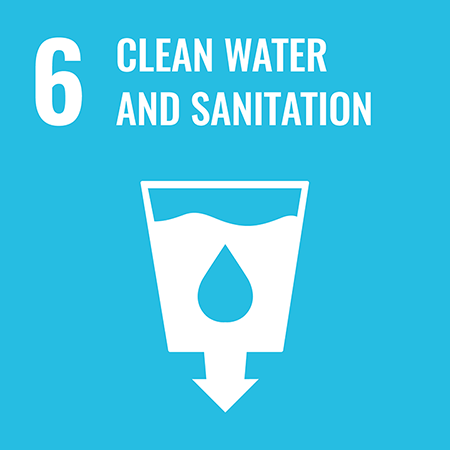Utilization of graywater for building greening and water heating
Abstract
The aim of this project is to design a technically mature system solution for the material and thermal recovery of greywater, on the one hand, to be able to use the resulting filtrate for irrigation purposes whilst, on the other hand, pioneering in the idea of recovering waste heat. As a result, drinking water shortages, which can be expected in dry summer months due to climate change, can be mitigated, while at the same time irrigating essential green islands ensuring the reduction urban heat islands. Through thermal recovery, a part of the energy for domestic water heating can be saved. The approach of such an efficient utilization of greywater, both materially and thermally, is unique and novel. One of the focal points of the project is the efficient recovery of waste heat with minimum heat loss. Housing developments of different sizes as well as housing-like uses, which have more or less seasonally constant wastewater volumes, are considered in order to ensure the cost-effectiveness of the overall solution. This combination of sewage and irrigation needs of building or green façade, represents an innovative coupling of energetic optimizations and small-climatic improvements. In the project, however, not only are the planning and technical aspects covered, but the requirements of the system are also considered in the sense of a holistic concept. Therefore, investigations are carried out on the quality of greywater after cleaning and its compatibility with plants of relevance to urban greening. In addition, further applications within buildings and the potential complications associated with the use of greywater are being investigated. Further to the conceptual considerations, a prototype of the plant will be built and subjected to various experiments within the framework of the project. This is to ensure long-term functionality as well as achieving high market relevance. The aim is to generate and to strengthen local expertise and product solutions in order to be able to survive on the future markets of "urban greening solutions" and "renewable, efficient provision of hot water".
living wall water quality cleaning efficiency suitability of plants
Publikationen
Project staff
Ulrike Pitha
Priv.-Doz. Dipl.-Ing. Dr. Ulrike Pitha
ulrike.pitha@boku.ac.at
Tel: +43 1 47654-87403
BOKU Project Leader
19.08.2019 - 31.03.2023
Bernhard Scharf
Dipl.-Ing. Dr. Bernhard Scharf
bernhard.scharf@boku.ac.at
Tel: +43 1 47654-87413
Project Staff
19.08.2019 - 31.03.2023
Roza Allabashi
Dipl.-Ing. Dr.techn. Roza Allabashi
roza.allabashi@boku.ac.at
Tel: +43 1 47654-81140
Sub Projectleader
19.08.2019 - 31.03.2023
Michael Gräf
Dipl.-Ing. Dr.nat.techn. Michael Gräf
michael.graef@boku.ac.at
Tel: +43 1 47654-87418
Project Staff
19.08.2019 - 31.03.2023
Bernhard Pucher
Dipl.-Ing. Dr.nat.techn. Bernhard Pucher
bernhard.pucher@boku.ac.at
Tel: +43 1 47654-81117
Project Staff
19.08.2019 - 31.03.2023
Rosemarie Stangl
Univ.Prof. Dipl.-Ing. Dr. Rosemarie Stangl
rosemarie.stangl@boku.ac.at
Tel: +43 1 47654-87401, 87426
Project Staff
19.08.2019 - 31.03.2023
BOKU partners
External partners

GEBE-STREBEL GmbH
none
partner

OeAD-Wohnraumverwaltungs GmbH
none
partner

Schöberl & Böll GmbH
none
partner

IBR & I Institute of Building, Research & Innovation ZT GmbH
none
partner

